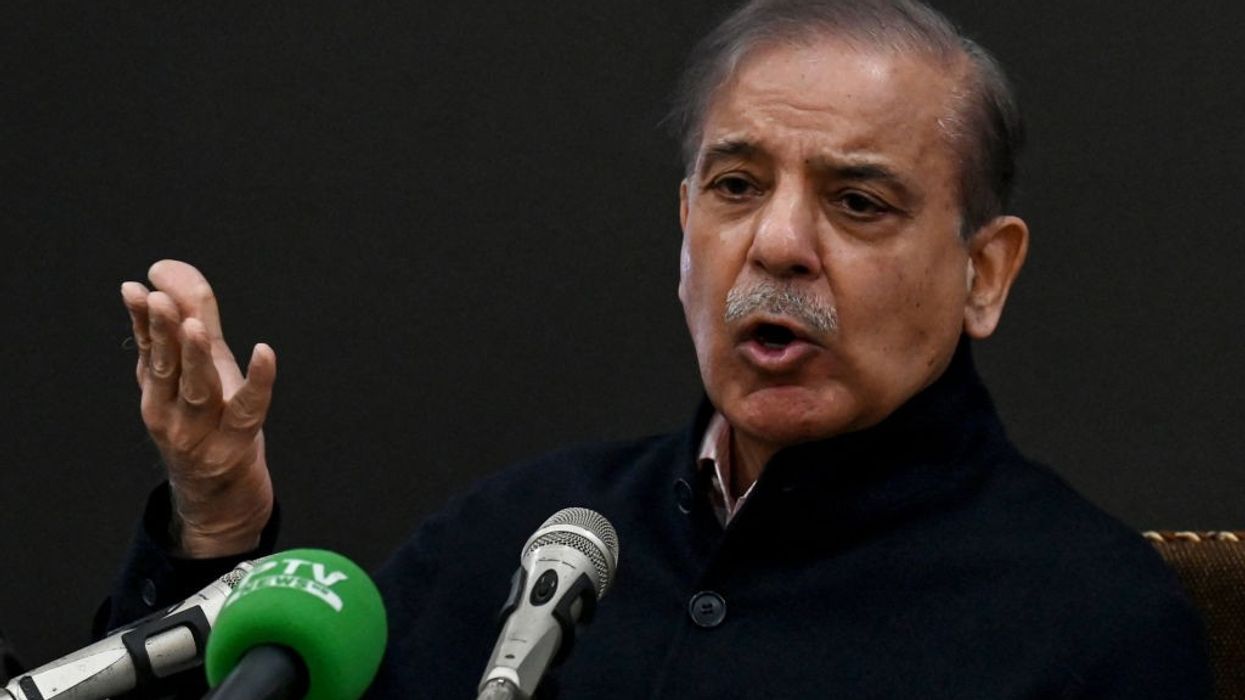PRIME MINISTER Shehbaz Sharif has pledged to end Pakistan's dependency on foreign aid and IMF bailouts and surpass neighbouring nations in economic activity, as he outlined a series of reforms to reduce the cash-strapped government's expenses and revive the economy.
Sharif addressed the nation on Saturday (15) and expressed hope that the next deal with the International Monetary Fund (IMF) for a bailout package would be the last in Pakistan's history.
The Pakistan government is currently in talks with the IMF for a loan estimated to be between $6-8 billion, as it strives to avert a default in a slow-paced economy.
Sharif emphasised that every penny would be spent on the progress of the nation and its people.
He expressed commitment to reduce expenses and, within five years, provide education and skills to the youth.
Sharif was addressing the nation after his government completed 100 days of rule.
He said that there were countries in the world that sought assistance from the IMF once and never needed it again.
"We have approached the IMF 24 to 25 times. I assure you today if we adhere to our programme and targets, the next IMF agreement will be the last in Pakistan's history," he said.
Austerity measures
Sharif highlighted the importance of tough decisions for the sake of the nation.
He vowed to abolish all institutions, ministries, and other departments burdening the national exchequer and have nothing to do with public service, asserting this move alone would save taxpayers' billions and foster prosperity.
"It is the prime obligation of the government to end all the extravagant expenses and shut down institutions that are not serving the public in any way," he said.
"One such department is the Public Works Department (PWD). It is known as the 'most notorious' one in terms of corruption," the Prime Minister added.
Declaring that the government will save on expenses wherever possible and will not establish more industries or be involved in running them, Sharif said, “Instead, we will work with the private sector.”
He warned that the road ahead is not only “long and difficult” but also “demands sacrifices” from both government personnel and the salaried class but his “government is committed to making a change.”
Sharif called for a collective effort to achieve these goals. "Every terrorist, smuggler, power thief, and tax evader is an enemy of the economy," he said.
Tax target
In the annual budget presented by Finance Minister Muhammad Aurangzeb last week, Pakistan had set a challenging tax revenue target of Rs 13 trillion (£36.86 billion) for the year starting July 1, a near 40 per cent jump from the current year.
Key objectives for the upcoming fiscal year include bringing the public debt-to-GDP ratio to sustainable levels and prioritising improvements in Pakistan's balance of payments position.
Pakistan is also looking to widen the tax base to avoid burdening existing taxpayers to meet its targets. (Agencies)




